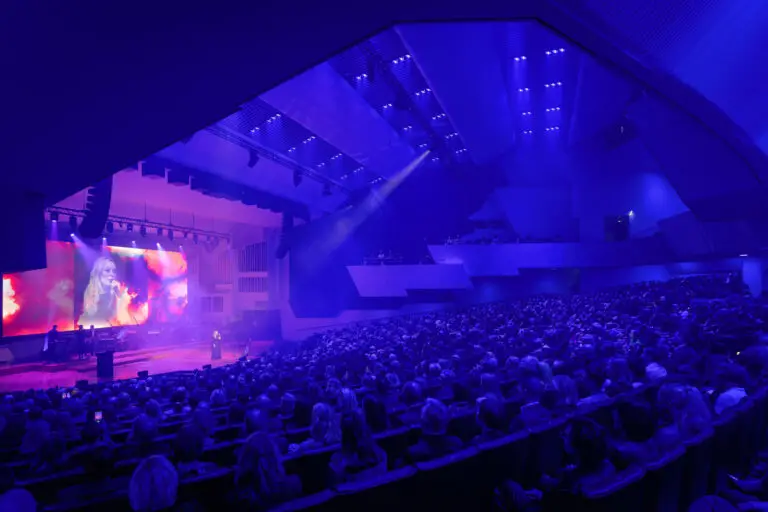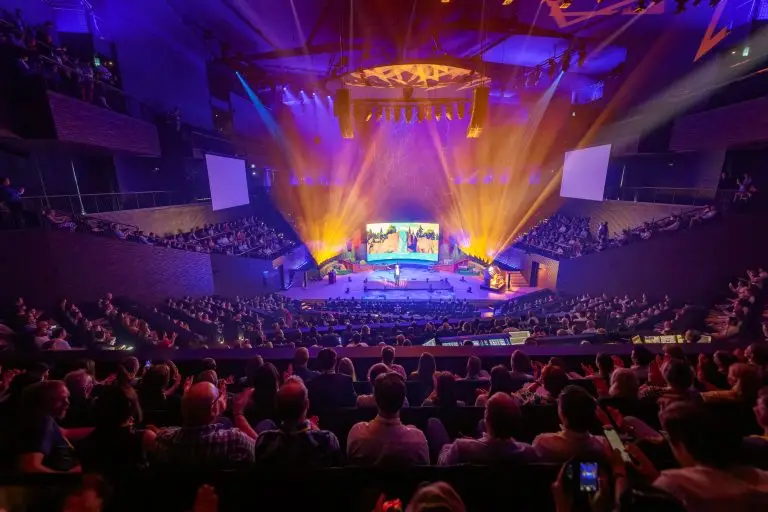A virus-safe event is organised by carefully considering and planning safety aspects before and after the event as well as during the actual event. The essential aspects are transparency in communications and careful preparations.
Is it already safe to begin to plan and promote business events for the autumn? How can you prepare for a possible second wave of the epidemic and its resulting restrictions during the planning stage of events? The easing of restrictions concerning the Covid-19 pandemic and events planned for the autumn of 2020 are now the subject of consideration for many Woltti Group customers.
“We have full prerequisites to organise events safely during the autumn, as long as the entity has been carefully planned from start to finish and we observe any authority orders and guidelines that are provided. The essential aspect it that we review the situations in which people encounter each other in advance, and plan how they can be implemented in a safe manner from the initial preparations to the actual events and thereafter”, says HP Hämäläinen, Woltti Group’s Head of Production.
Safety guidelines are constantly updated and specified
The safety regulations and guidelines concerning the coronavirus are further specified every week. However, detailed instructions on organising business events may not be provided. Therefore, Woltti Group has begun to actively develop its own operating models to meet the needs that the increasingly growing consideration towards virus safety brings along.
“We have worked hard to prepare an internal workbook on organising coronavirus-safe events. The instructions do not form industry-specific general guidelines, but instead they form a new working method and operating model that we have worked on and internally provided training for, and they shall operate as a road map for Woltti’s future coronavirus-safe events,” Hämäläinen says.
“Official instructions and recommendations are always provided by the authorities, and they define the minimum level to be observed in order for us to organise events in the first place. But that is not sufficient, when our customers wish to ensure the safety of their events. Therefore, we have compiled operating methods and recommendations from international sources and various different industries for the organisation of safe events.”
Transparency at the core of safe operations
There are many ways to safely carry out an event. Woltti Group’s operating model emphasises on careful pre-planning and the significance of communications. A detailed risk analysis is prepared for events in which possible risk situations are reviewed in advance.
In addition to a virus-safe event, it is important to be able to create a psychological sense of safety for the participants.
“It is important for us to understand how safety is psychologically experienced and how we can create the sense of safety for customers and guests. Therefore, it is important in this situation that we are transparent to the guests about what will be done and what has been done to prevent the virus from spreading,” Hämäläinen emphasises.
The role of prior communications is further emphasised. When the measures aiming to ensure safety are transparently communicated, there is a higher likelihood that people will have the courage to participate in the actual event. It is also important to communicate to the invited guests that if they are unwell, they should stay at home.
Woltti Group has also consulted its occupational health care partner, Terveystalo, about considerations concerning the event industry’s safety aspects.
“For many, business events are an important part of work. The message to be conveyed is that you can spend time with others as long as we ensure hygiene. In the presence of others, the main principle is to keep sufficient distance, and if this is not possible, respirators are used. If you are unwell or you have any symptoms, it is best to stay away all together,” says Jarkko Kivikoski, Woltti Group’s Business Director, as he encapsulates the main principles.
Next up: detailed list of participants, respirators and thermometers
In addition to international indications, Woltti Group also keeps an eye on operating methods and guidelines created by national operators concerning the organisation of coronavirus-safe events.
“For example, a majority of Finnish event venues are now working on their own guidelines for the production of events. We cooperate seamlessly in relation to them,” Hämäläinen says.
In the future, it will be increasingly more important to collect detailed information on the participants and staff when organising an event. Therefore, prior registration in an event is important. Communications with authorities also plays an important role.
“We exchange information concerning the event with authorities already during the planning phase, in order for the necessary communication channel to remain open during and after the event too. When several people convene, we must have lists of participants in order to be able to trace a potential chain of contagion too.”
In addition to participants, the safety regulations and guidelines also apply to staff and the entire supply chain.
“The staff must be trained in advance about the safety guidelines, and it must be supervised that the relevant regulations are implemented both during the development phase of the event as well as during the dismantle phase of the event too. In the same way as we have a list of guests, we must also have detailed lists about the workers.”
“The world is currently paying a lot of attention on the need for healthcare staff at events. It has already been seen at airports and at trade fairs organised in Asia that each participant passes through a temperature measurement point. Respirators will also be highly likely at events even though there is currently no official recommendation,” Hämäläinen lists.
It is also recommended that a dedicated person is appointed among the staff whose area of responsibility is to be the person in charge of hygiene and who will ensure that the safety aspects are considered throughout the entire event. When the risks have been mapped and the event has been planned in a safe manner, communications are transparent and the event has the readiness to react to surprises and illness, this will result at best in the safety of the event being issued a full 10/10 score.
Are you considering organising an event in the autumn? Please contact jarkko.kivikoski@wolttigroup.fi or hp.hamalainen@wolttigroup.fi


